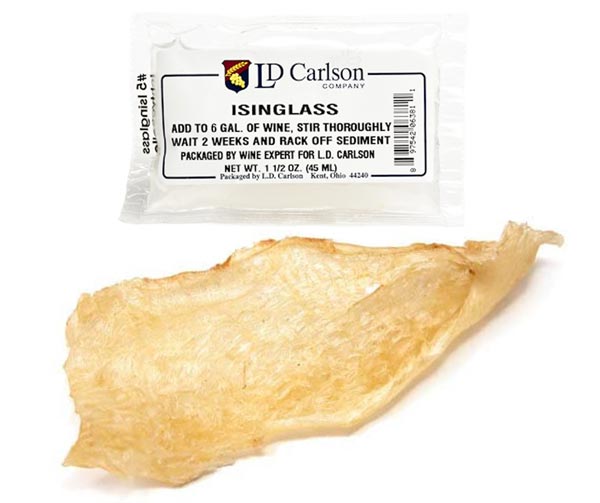What is Isinglass?

At first glance, isinglass might sound like an exotic gemstone, but its origins are far more unexpected. Isinglass is a natural, translucent form of collagen derived from the dried swim bladders of fish. Historically prized for its remarkable clarifying properties, it has been used for centuries in winemaking, brewing, and even parchment restoration. Though modern alternatives have largely replaced it in some applications, isinglass remains a key player in traditional brewing and vinification processes. So what’s the deal with isinglass and caviar? How are they related? That’s what we’re covering in this blog post.
The History Behind Isinglass
The name "isinglass" comes from the Dutch word huizenblaas, which translates to "sturgeon bladder." This nod to its origins speaks to a time when the best-quality isinglass was sourced from sturgeon—especially the highly coveted beluga sturgeon. Beyond caviar, the sturgeon’s swim bladder was once an essential commodity, particularly throughout the 19th and 20th centuries, when it was in high demand for its unparalleled purity and strength.
Unfortunately, this demand contributed to the overfishing of sturgeon, driving many species to the brink of extinction. While most people associate this decline with the caviar trade, isinglass production played a role as well. Today, conservation efforts and fishing regulations have helped protect sturgeon populations, and isinglass is now primarily sourced from more abundant fish species such as cod and hake.
How Isinglass is Used Today
Isinglass has a long history of diverse applications. In the past, it was even used to preserve eggs during wartime and to repair delicate parchment manuscripts. However, its most well-known modern use is as a fining agent in the production of beer and wine.
In brewing and winemaking, isinglass helps remove unwanted particles, accelerating the settling process and improving clarity. While only trace amounts remain in the final product, its use has sparked discussions around dietary considerations—many vegetarians and vegans opt for beverages processed without animal-derived fining agents. Fortunately, plant-based alternatives, such as pea protein and bentonite clay, have become more widely available for those seeking vegan-friendly options.
Isinglass in a Changing World
While isinglass has been largely replaced in the food industry by gelatin and other less expensive alternatives, it remains an important part of traditional brewing and winemaking methods. As consumer preferences shift and sustainability takes center stage, the conversation around fining agents continues to evolve. For those curious about the fascinating world of fish-based delicacies, isinglass is just one piece of a larger puzzle. "



